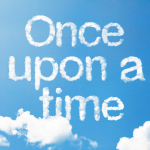‘The most powerful form of human communication’

Why tell corporate stories? |
|
 |
Why is storytelling important in business? It’s a communication power tool Why do we tell stories? Anecdotes make your messages easier to believe, understand and remember. |
How to tell corporate stories |
|
 |
Tell your origin story, develop your process story and more Stories are everywhere — in children’s songs and nursery rhymes, on TV and in the movies, in the news and on the web. And if all else fails: Ask. |
|
|
|
 |
How to interview someone for a story Develop your narrative Research stories: Once you find a story, you need to gather the raw material for it. |
|
|
|
 |
Try these 6 elements of storytelling Character, conflict among key ingredients Whether you’re telling a story in a content marketing piece or a news release, include these 6 elements of great stories. |
|
|
|
 |
Find the narrative arc From inciting incident to turning point to rising action, here’s how to organize the parts of a story to craft a great chronological narrative. |
|
|
|
 |
How to write a short storytelling piece Write micro stories, serialize your story and more A story need not be eternal to be immortal. |
More on corporate storytelling |
|
 |
Resources on writing corporate storytelling Websites, books and tools Put “the most powerful form of human communication” to work in your next message with these tips and techniques. |
|
|
|
 |
Quotes on telling business, corporate stories What writers & others say “Dogs sniff each other. Human beings tell stories. This is our native language.” — Steve Denning, author, The Springboard |